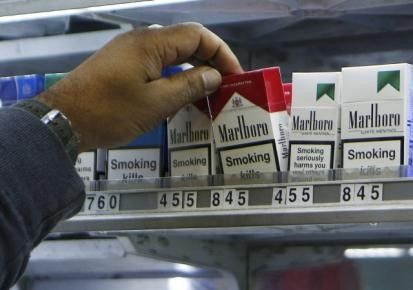Australian Doctors Refuse to Treat Smokers Unless They Quit
Nearly 80 Percent of The Cases Need Not Treatment if They Quit Smoking, Say Doctors

Australian doctors admit to postponing treatment of smokers unless they quit; in emergency cases however, they are tended to immediately. Vascular surgeon Zahid Reza, from the Edinburgh Royal Infirmary stated that his clinic would not accept GP referrals for patients who smoked, this angered the people of Scotland.
But Reza in his defence stated that they would not do well in the treatment anyway and that by quitting smoking nearly 80 per cent of the smokers would experience better health. He explained that there was a change in lifestyle that was needed.
Australian and New Zealand Society of Vascular Surgeons' President, Dr John Quinn said that only immediate treatment was refused by Australian doctors, it was a mere postponing and not a rejection of treatment.
Quinn put across a valid point that patients suffering from vascular pain when they performed activities such as walking would be urged to quit smoking to cure the problem rather than get an operation for a stent. He explained, "As surgeons we have the right not to treat in certain circumstances like obesity or smoking, if the patient doesn't change behaviour." He also pointed that treatment worked better for those who had quit smoking compared to those who did not and so, "they should be treated first in certain circumstances."
If a person denies changing his lifestyle, the surgery also would not be beneficial. Statistics show that nearly 482,000 Australians are hospitalised due to cardiovascular disease each year and 45,000 die, around ten per cent of the cases are linked to smoking. The cost of surgeries are also huge, treatment for heart attack on an average costs, $17,685, a coronary angiogram costs $9,000, and coronary bypass surgery costs $33,000.
These could be avoided by just quitting the habit. It is seen that those who quit smoking have a healthier heart and their coronary risks are halved within a year, two years later they are as normal as a non smoker. So, doctors are taking this route of refusing or postponing treatment as a means to get patients to quit.
Australian Medical Association president Dr Brian Owler, said with regard to the refusal of the treatment of smokers, that he understands the frustration and futility a doctor feels while treating a smoker but a decision such as this, "is not the right thing to do." He explained, "It's the same thing with obesity, we wouldn't, not treat a patient's diabetes."
He suggested that doctors must take the opportunity, cure the patients and then encourage them to quit smoking, this would be a positive method to persuade smokers to adopt a better lifestyle.
Sydney University Professor of Public Health Simon Chapman, threw light on a few statistics. Only 50 per cent of smoker die due to smoking related disease but the other 50 percent he states, live, and that is the reason, such a restriction on treatment of smokers cannot be posed. It would be a blind generalisation.
Mr Maurice Swanson, the Heart Foundation's national spokesman on tobacco control said that the refusal of treatment is not something the foundation would support instead, he said that the attention must shift to the tobacco industry, "that continues to ruthlessly market, promote and make widely available, a lethal and addictive product that kills more than 15,000 Australians every year."





















